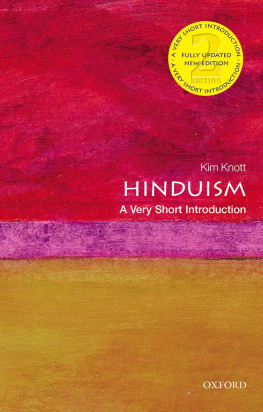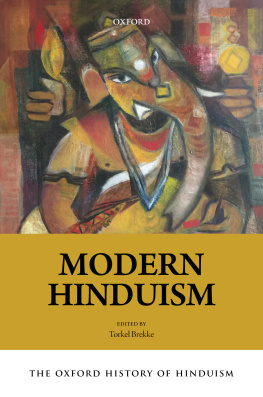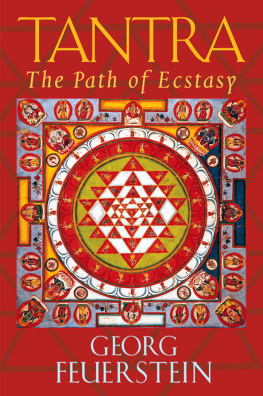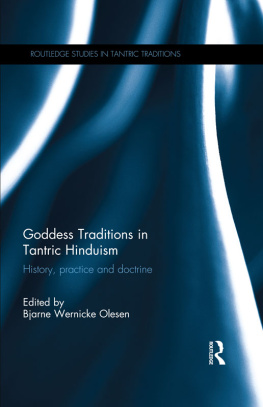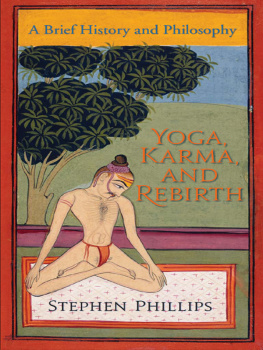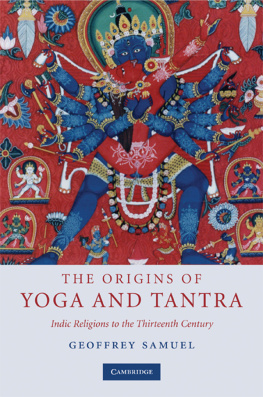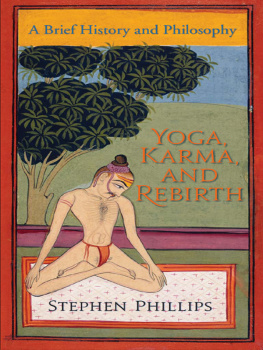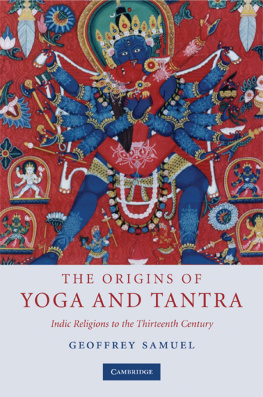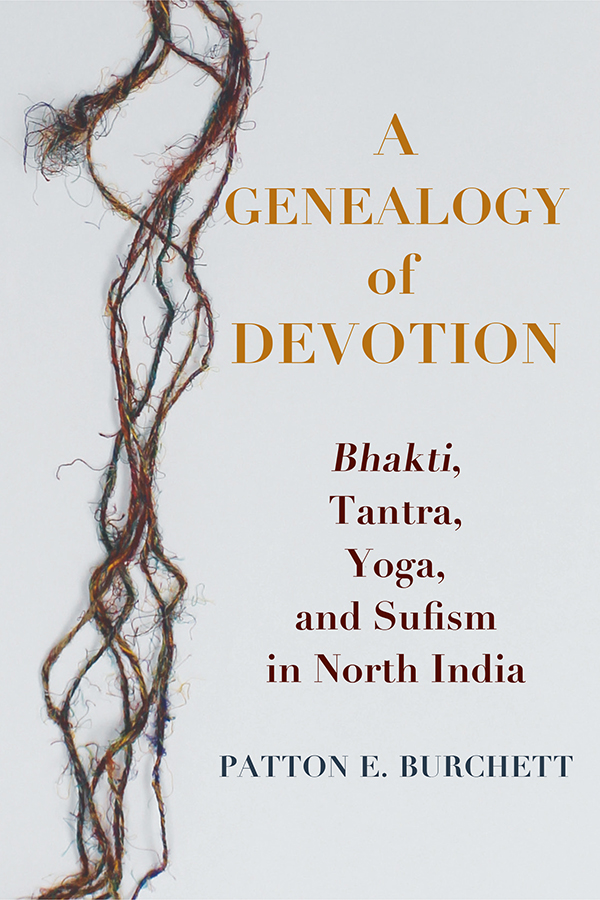Contents
Guide
Pagebreaks of the print version
A Genealogy of Devotion
A Genealogy of Devotion
Bhakti , Tantra, Yoga, and Sufism in North India
PATTON E. BURCHETT
Columbia University Press
New York

Columbia University Press gratefully acknowledges the generous support for this book provided by Publishers Circle member Neil Krishan Aggarwal.

Columbia University Press wishes to express its appreciation for assistance given by the Deans Office at the College of William & Mary, as well as the Columbia University Seminars Schoff-Warner Publication Funds, in the publication of this book.
Columbia University Press
Publishers Since 1893
New York Chichester, West Sussex
cup.columbia.edu
Copyright 2019 Columbia University Press
All rights reserved
E-ISBN 978-0-231-54883-0
Chapter 8 contains some material previously published in My Miracle Trumps Your Magic: Encounters with Yogis in Sufi and Bhakti Hagiographical Literature, in Yoga Powers: Extraordinary Capacities Attained Through Meditation and Concentration , ed. Knut A. Jacobsen (Leiden: Brill, 2012).
Chapter 9 contains some material previously published in Bitten by the Snake: Early Modern Devotional Critiques of Tantra-Mantra, Journal of Hindu Studies 6, no. 1 (2013).
Library of Congress Cataloging-in-Publication Data
Names: Burchett, Patton, author.
Title: A genealogy of devotion : Bhakti, Tantra, Yoga, and Sufism in North India / Patton Burchett.
Description: New York : Columbia University Press, 2019. | Includes bibliographical references and index.
Identifiers: LCCN 2018036629 (print) | LCCN 2018043259 (ebook) | ISBN 9780231190329 (cloth : alk. paper)
Subjects: LCSH: Bhakti. | Sufism. | Yoga. | Tantrism. | IndiaReligion.
Classification: LCC BL1214.32.B53 (ebook) | LCC BL1214.32.B53 B87 2019 print) | DDC 294.5/43609545dc23
LC record available at https://lccn.loc.gov/2018036629
A Columbia University Press E-book.
CUP would be pleased to hear about your reading experience with this e-book at .
Cover image: Julia Kushnirsky
TO JACK
AND
TO MICHELLE
Contents
T his book is the culmination of more than a decade of study, research, and writingincluding two years spent in Indiaand could not have been completed without the support of many individuals and institutions along the way. The origins of this project go back to the fall of 1997 in a classroom at Davidson College in North Carolina, where Professor William Mahony inspired me in ways he could not have imagined and thereby set me on a path that has led to a doctorate in South Asian religions, a tenure-track position as an assistant professor, and now the publication of this book. Thus, the first of many thanks I want to offer goes to you, Bill. I also owe a great deal of thanks to my mentors in the Religious Studies Program at Indiana University Bloomington, David Haberman and Rebecca Manring, who took in a rather clueless masters student fresh out of the army and very unsure of his academic prospects, deftly transforming him into a young scholar of religion and South Asia with fundamental skills and perspectives necessary for success in my doctoral work at Columbia. After completing my PhD, I was extremely fortunate to spend three years in a postdoctoral position in the Religious Studies Program at New York University, where Angelo Zito and Adam Becker provided an unusually supportive and intellectually vibrant atmosphere and helped me to grow as a teacher and scholar in ways I do not think I otherwise would have.
Since arriving at the College of William & Mary in 2015, I have received an exceptional level of institutional support. The college has awarded me two summer grants that were crucial to the final stages of writing and revising while also generously providing subvention funds vital for the publication of this book. I feel very fortunate to be a part of its Department of Religious Studies, whose faculty members have guided and supported me while creating a remarkably positive and collegial working environment. In particular, I want to thank my colleagues Alex Angelov, Annie Blazer, Aaron Griffith, Max Katz, Mark McLaughlin, Oludamini Ogunnaike, and Chitralekha Zutshi. The advice, mental-emotional support, and intellectual stimulation you have offered me have been more helpful than you know in completing this book.
I am heavily indebted to the American Institute of Indian Studies for the gracious support it provided at several key points. It was in its Hindi-language program in Jaipur that I received the intensive language training that allowed me to undertake much of the archival research and ethnographic fieldwork that my dissertationfrom which this book emergedrequired. Swami-ji, Neelam-ji, Vidhu-ji, Rashmi-ji, Anita-ji, Rekha-ji, Vivekananand-ji, and Prem-ji: as so many other American scholars of North India do, I owe you a great debt of gratitude. I am thankful for the institutes Hindi Language Fellowship (20072008) and for the Foreign Language and Area Studies Fellowship (summer 2009), which made my language training possible, and I am especially grateful for the institutes Junior Research Fellowship (20102011), which provided the necessary funding and organizational support for my dissertation research in India. For its support during my research in India, I want to express my gratitude to the institutes office in Delhi, as well as to the staffs at the Rajasthan Oriental Research Institute in Jodhpur and the royal library of the Jaipur City Palace, whose patient help allowed me to attain copies of vital manuscript materials. Prem Singh Rajpurohit offered key guidance as I sat down to make initial sense of several of these materials. Chitranjan Dutt and especially Dinkar Rai, at the Landour Language School in Mussoorie, provided two weeks of crucial assistance as I worked through some difficult passages of Brajbhasha poetry later in the project. While in Jaipur, I was given crucial guidance and encouragement by Monika Horstmann, Dominique Sila-Khan, and Vronique Bouillier, who each (at different moments in the project) generously offered their time and local expertise to further my research in important ways.
I am grateful to the Columbia University Seminars Publication Committee for the award of subvention funds necessary for the publication of this book. The Columbia University Department of Religion sponsored several summers of research vital to this book (in its dissertation form) and always provided an intellectually vibrant and supportive environment that offered numerous opportunities in which faculty members and graduate students were able to hear and comment constructively on aspects of my research and writing. My close friends from Columbias doctoral program have provided truly invaluable supportintellectual and emotionalever since I met them. Joe Blankholm, Susie Andrews, Todd French, Matt Pereira, Greg Scott, Dan Vaca: the conversations, debates, and laughter I have shared with you and the memories we have made and continue to make have been absolutely essential to the successful completion of this book. I can say the same about a number of those from my South Asian studies cohort at Columbia. Hamsa Stainton, Tyler Williams, and Dalpat Rajpurohit: I have learned so much from each of you and cannot overstate my appreciation for the multitude of ways you have supported and encouraged me and the progress of this book in our informal conversations, our research trips together in India, and beyond. Tyler, I am especially thankful to you for the time and effort you gave to reading and offering detailed and remarkably insightful comments on drafts of several chapters. Dalpat, with regard to many of the translations of primary sources in this book, I am forever indebted to you for sacrificing hours of your time to sit with me and work through many challenging passages of Brajbhasha poetry. I am also incredibly grateful for all the feedback I have received and the insights and new ideas I have gained in the course of many conversations with my fellow Columbia-trained South Asianist friends and colleagues, in particular Joel Bordeaux, Udi Halperin, James Hare, Jon Keune, Joel Lee, Simran Jeet Singh, Drew Thomases, Audrey Truschke, and Anand Venkatkrishnan.


